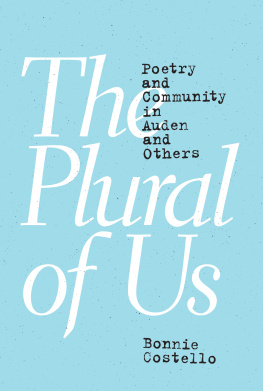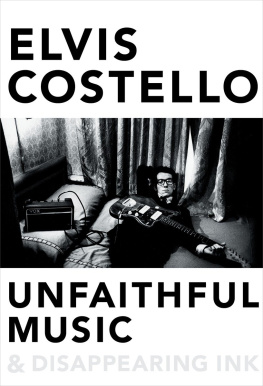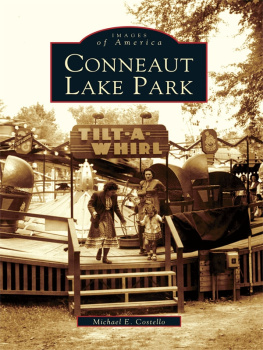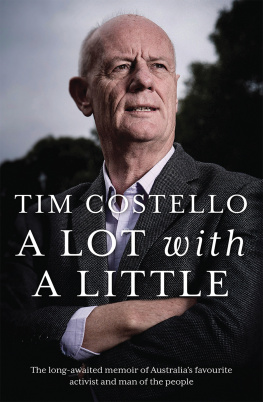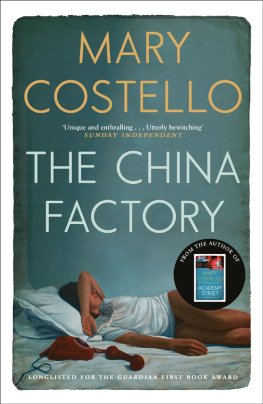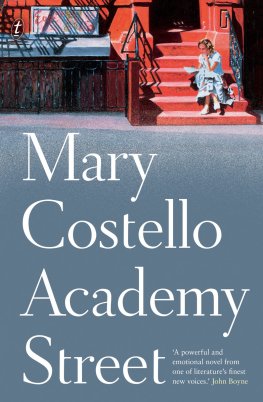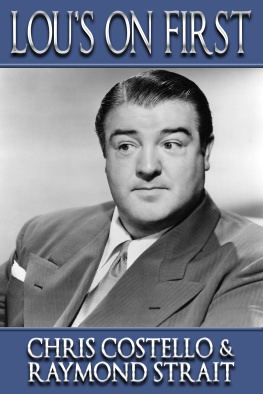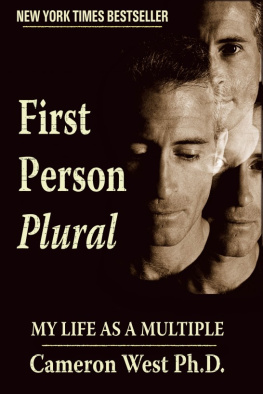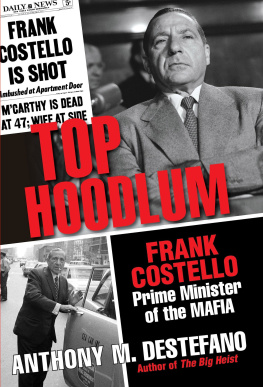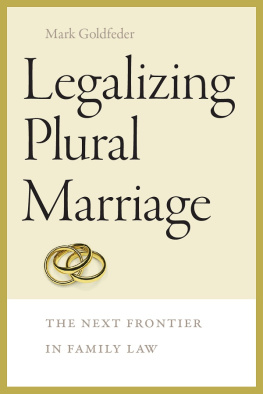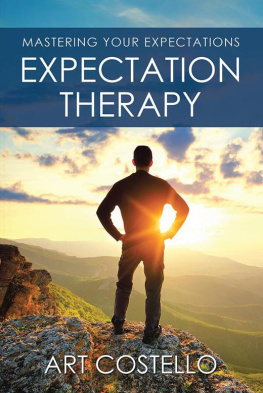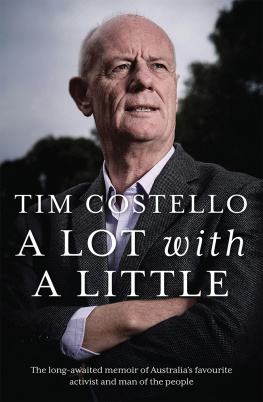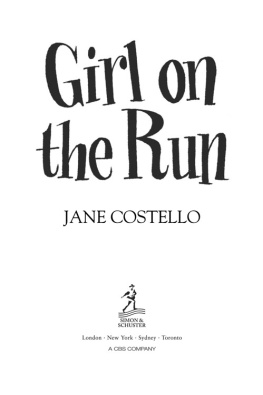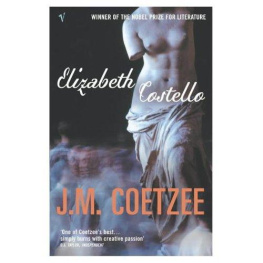Costello - The Plural of Us
Here you can read online Costello - The Plural of Us full text of the book (entire story) in english for free. Download pdf and epub, get meaning, cover and reviews about this ebook. year: 0, publisher: Princeton University Press, genre: Science. Description of the work, (preface) as well as reviews are available. Best literature library LitArk.com created for fans of good reading and offers a wide selection of genres:
Romance novel
Science fiction
Adventure
Detective
Science
History
Home and family
Prose
Art
Politics
Computer
Non-fiction
Religion
Business
Children
Humor
Choose a favorite category and find really read worthwhile books. Enjoy immersion in the world of imagination, feel the emotions of the characters or learn something new for yourself, make an fascinating discovery.
The Plural of Us: summary, description and annotation
We offer to read an annotation, description, summary or preface (depends on what the author of the book "The Plural of Us" wrote himself). If you haven't found the necessary information about the book — write in the comments, we will try to find it.
The Plural of Us — read online for free the complete book (whole text) full work
Below is the text of the book, divided by pages. System saving the place of the last page read, allows you to conveniently read the book "The Plural of Us" online for free, without having to search again every time where you left off. Put a bookmark, and you can go to the page where you finished reading at any time.
Font size:
Interval:
Bookmark:

THE PLURAL OF US
The Plural of Us
POETRY AND COMMUNITY
IN AUDEN AND OTHERS
BONNIE COSTELLO
PRINCETON UNIVERSITY PRESS
PRINCETON & OXFORD
Copyright 2017 by Princeton University Press
Published by Princeton University Press,
41 William Street, Princeton, New Jersey 08540
In the United Kingdom: Princeton University Press,
6 Oxford Street, Woodstock, Oxfordshire OX20 1TR
press.princeton.edu
All Rights Reserved
ISBN 978-0-691-17281-1
Library of Congress Control Number: 2016960848
British Library Cataloging-in-Publication Data is available
This book has been composed in Classic Arno Pro
Printed on acid-free paper.
Printed in the United States of America
10 9 8 7 6 5 4 3 2 1
How do you make a plural of us, my sweet Master of Arts?
LOUISE BOGAN TO THEODORE ROETHKE , OCTOBER 3 , 1935
CONTENTS
ACKNOWLEDGMENTS
I AM GRATEFUL to the American Council of Learned Societies and the Cullman Center at the New York Public Library for a fellowship in 201112 that gave me the time and space to develop this project. Thanks to NYPL Berg Collection director Isaac Gewirtz and librarian Anne Garner for their assistance in helping me explore the remarkable Auden papers at the Berg.
Audens literary executor, Edward Mendelson, has been generous throughout the project in answering my questions and granting permission to quote unpublished material by Auden. I completed a draft of the book in 201415 with funding from the National Endowment for the Humanities, in combination with sabbatical support from Boston University. Thanks also to the Boston University Center for the Humanities for help in covering permissions fees.
Credits
Law Like Love, copyright 1940 and renewed 1968 by W. H. Auden; and A Summer Night, copyright 1937 by Random House, Inc., and renewed 1965 by W. H. Auden; from Collected Poems, by W. H. Auden. Used by permission of Random House, an imprint and division of Penguin Random House LLC and by Curtis Brown, Ltd. All rights reserved. Any third party use of this material, outside of this publication, is prohibited. Interested parties must apply directly to Penguin Random House LLC for permission.
Excerpts from The English Auden: Poems, Essays, and Dramatic Writings, 19271939, copyright 1977 renewed. Reprinted by permission of Curtis Brown, Ltd.
Nathaniel Mackey, from Splay Anthem, copyright 2002 by Nathaniel Mackey. Reprinted by permission of New Directions Publishing Corp.
Excerpt from the unpublished manuscript of The Sea and the Mirror used by permission of the Estate of W.H. Auden. All rights reserved.
Speaking of Us
POETRY IS THE EXPRESSION of individuals, prompted by experience and imagination to record their feelings, their ideas, their fears and desires. It also springs from culture and community. The poet presumes, or at least hopes, that his expression speaks for others, that what he feels and thinks is not merely personal but shared, representative, even universal. And the thoughts and aspirations the poet presents from his individual perspective are not only those of the private and inward self. They may concern his interpersonal and social relations, or his participation in the common, which is established in his address to the reader. How the poet makes use of the first-person plural may tell us a lot about how he imagines his intimate, social, and artistic relations. We can be partisan, tribal, authoritarian, and even demagogic. Yet many of our greatest poets have often meant by we not the collective singular We of tradition but rather an open-ended You-and-I united by a common truth or at least together seeking truth to which we shall both be compelled to assent; they have said we to create community rather than to divide groups or impose majority.
As Walt Whitman draws to a close his long poem Crossing Brooklyn The collective subject in these lines is not so much presumed as brought about by the poem, and in a way this we is the very thing promised without mentioning it. This we, a relation emerging in the constant shuttle of I and you, is indeterminate and open, public and yet private, many and few, of the mind and of the body. Whitmans promise of democratic community is linked to the plurality of readers and is a thing always in the making, not something fixed and imposed. Whitmans we is agglomerated but also individuated; it is reciprocal and engaged, with indefinite edges and continuously varying interlocutors, infinite but not a totality. In speaking of us, Whitman foregrounds the nuanced social meanings and varied tonalities of the first-person plural. He also highlights its performative nature. It makes something happen. Whitman opened up a pronominal poetics that has become a hallmark of recent American poetry. However, as Whitman well knew, the relation of this imaginary community and literary-symbolic effect to a realizable social presence is ambiguous and indeterminate.
W. R. Johnson celebrated Whitman as a rare choral voice in modern lyric. Even Whitmans I, he argues, is really a we since it speaks of a cultures aspirations. Whitmans choral lyric, Johnson avers, is not a reflection of the realities of America but a vision of American potential: What choral poets do is not so much to state the fact of good community as to imagine the possibility of good community. For Johnson, modern choral lyric speaks for a potentiality that it also helps realize, at least in the virtual world of reading.
Poetry has its own special language, but it is built up from, and often imitates, ordinary language and draws out implications of our usage, thus helping us reflect on speech in our public and private lives. While this is a study focused entirely on poetry (and the we as narrative voice in fiction produces quite different effects), some preliminary reflection on the perils and controversies surrounding common usage of the first-person plural helps frame the discussion. We allow a great deal of license to the literary imagination, but in public speeches, journalism, or politics, for instance, this same invocation of an indeterminate we can sound hollow, coercive, or presumptuous. Does the orator or writer presume to speak for me? Does we have any real antecedent for an unbounded, diverse populace? This is a foundational question in A fragmented society, a society of us and them, turns away, or looks on in disdain, at the suffering of minorities. But if we includes all the people of America, then the degraded condition of some reflects on everyone. For James Baldwin in 1960, Harlem becomes, not a place apart, but a measure of who we are. He finds rhetorical power in the grammatical ambiguity of the first-person plural through a small modifying clause that closes his essay Fifth Avenue, Uptown. Baldwin implicitly calls Americans to honor the promise of inclusiveness: Walk through the streets of Harlem, Baldwin invites his reader, and see what we, this nation, have become. For better or worse, we is a powerful communicative tool, perhaps the quintessential pronoun of oratory, if also of intimacy. Poetry reflects and sometimes seeks to alter the language we use, publicly and privately, and the meanings we form. The study of literature, especially poetry, can raise our awareness of the force and risk of pronouns. Literature does not always want to serve an ameliorative function, nor should it. But some poetry seeks to harness the rhetorical power of the first-person plural to posit and promote community, often where there is social fragmentation. It can also alert us, intentionally or not, to the pronouns dangers and exclusions, probing the implications of our usage and making us attentive to what we really mean when we say we.
Next pageFont size:
Interval:
Bookmark:
Similar books «The Plural of Us»
Look at similar books to The Plural of Us. We have selected literature similar in name and meaning in the hope of providing readers with more options to find new, interesting, not yet read works.
Discussion, reviews of the book The Plural of Us and just readers' own opinions. Leave your comments, write what you think about the work, its meaning or the main characters. Specify what exactly you liked and what you didn't like, and why you think so.

